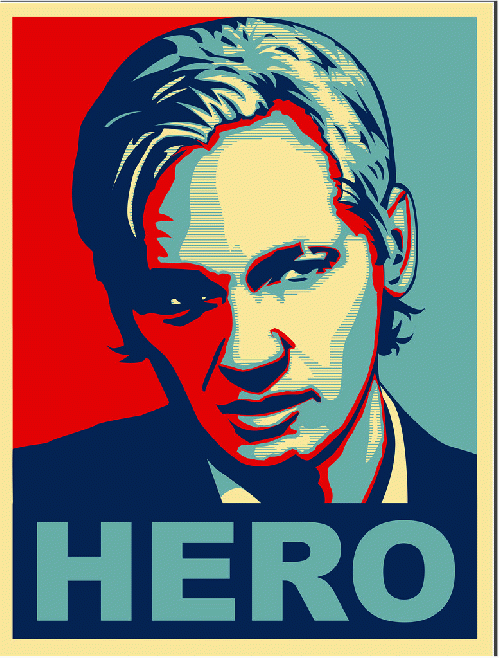From The Intercept
Press freedom advocates must be careful not to indulge Trump's conspiracy theories while they lobby for whistleblower pardons.
IN 2007, the Bush administration's Justice Department sent me a letter saying it was conducting a criminal investigation into "the unauthorized disclosure of classified information" in my 2006 book, "State of War."
When my lawyers called the Justice Department about the letter, the prosecutors refused to say I was not a "subject" of their leak investigation. That was ominous. If I were considered a "subject," rather than simply a witness, it meant the government hadn't ruled out prosecuting me for publishing classified information.
Eventually after the Obama administration took over the case the Justice Department decided to treat me only as a witness and did not try to prosecute me.
But in the future, the outcome of a similar case for a journalist might be very different if Julian Assange is successfully prosecuted on the charges brought against him by President Donald Trump's Justice Department.
The Trump administration has charged Assange under the Espionage Act for conspiring to leak classified documents. The indictment focuses on his alleged efforts to encourage former Army intelligence analyst Chelsea Manning to leak classified documents to him and WikiLeaks. If the Assange prosecution is successful, it will set a dangerous precedent: that journalists can be prosecuted based on their interactions with sources who provide them with government secrets.
Such a precedent could make it extremely difficult for journalists to cover military, intelligence, and related national security matters, and thus leave the public in the dark about what the government is really doing around the world.
That is why the U.S. indictment of Julian Assange is so dangerous to liberty in America, and why the case against Assange should be dropped and he should be pardoned.
While Trump has still not publicly accepted his defeat in the 2020 presidential election, he has begun to issue a spate of pardons. On Tuesday, he issued pardons to a group that included two convicted of crimes in connection with the Trump-Russia investigation, and four former Blackwater contractors convicted of killing Iraqi civilians.
Despite the stench surrounding Trump's latest pardons, supporters of several whistleblowers have launched public campaigns to lobby for pardons; the supporters of Assange and Edward Snowden have been the most vocal.
(Note: You can view every article as one long page if you sign up as an Advocate Member, or higher).






